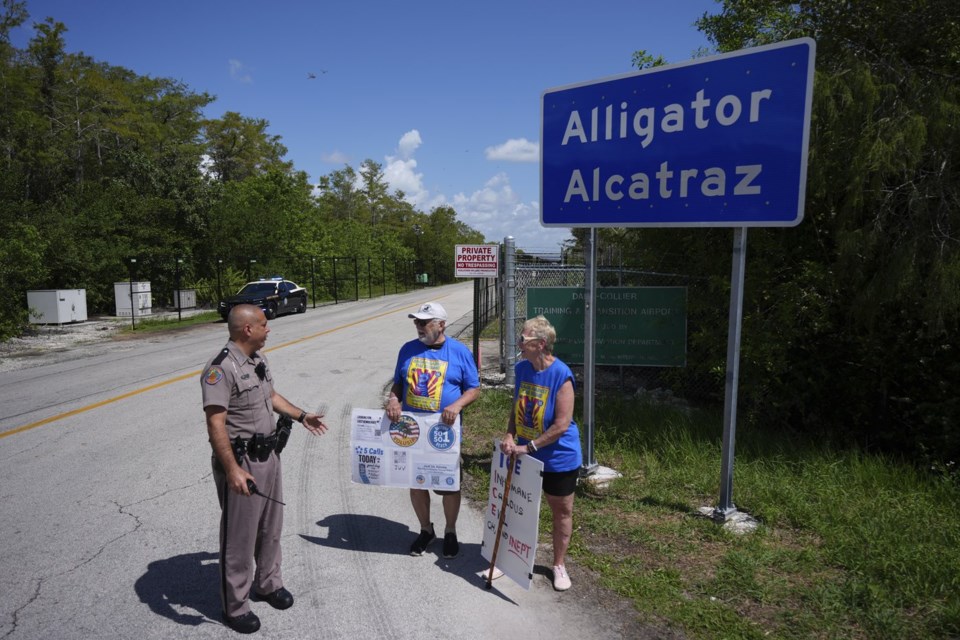ORLANDO, Fla. (AP) — Attorneys fighting for the legal rights of detainees at an immigration detention center in the Florida Everglades have their first hearing in court on Thursday since a federal judge ordered operations at “Alligator Alcatraz” to wind down in a separate case.
Among the issues needing to be sorted out in federal court in Fort Myers, Florida, was how the ruling in the separate environmental case was going to impact the lawsuit, which claims detainees have been denied the right to meet with their attorneys privately in violation of the First Amendment.
In the environmental lawsuit, U.S. District Judge Kathleen Williams issued a preliminary injunction last month ordering operations at the facility to be wound down by the end of October, with detainees transferred to other facilities and equipment and fencing removed.
Republican Gov. Ron DeSantis’ administration in late June raced to build the facility on an isolated airstrip surrounded by wetlands to aid President Donald Trump’s efforts to deport people in the U.S. illegally. The governor said the location in the rugged and remote Everglades was meant as a deterrent against escape, much like the island prison in California that Republicans named it after.
Thursday's courtroom meeting was also the first hearing since the legal rights case was transferred from Miami to Fort Myers, with one of the counts tossed out. U.S. District Judge Rodolfo Ruiz in Miami last month said that the claim that detainees were denied hearings in immigration court was rendered moot when the Trump administration designated the Krome North Processing Center near Miami as a site for their cases to be heard.
Ruiz also ordered the rest of the case to be heard in Florida's middle district, granting the state defendants a change of venue motion. The remaining counts address allegations of delays in scheduling meetings between detainees and their attorneys and an inability for the detainees to talk privately with their attorneys by phone or videoconference at the facility, whose official name is the South Detention Facility.
Attorneys for the detainees argued in court papers filed Tuesday that the preliminary injunction in the environmental case has no impact on their case since the detention center continues to house detainees.
The state and federal governments have appealed Williams' ruling, asking that it be put on hold. If their request for a stay is denied, and the facility eventually ceases operations, it could render the legal rights lawsuit moot, according to the federal government in court papers.
On the other hand, if the stay is granted and Williams' order is put on hold, the state of Florida plans to resume accepting detainees at the facility, state officials said in court papers for the legal rights case.
As part of their appeal of the environmental case, state officials said that only four U.S. Immigration and Customs Enforcement agents at any given time are at the Florida-run detention center. The Florida officials said in court papers that the ICE agents “do not control the site."
The question of who controls the facility is at the heart of the state and federal government's appeal of Williams' ruling. Her decision was issued in response to a lawsuit brought by Friends of the Everglades, the Center for Biological Diversity and the Miccosukee Tribe, who accused the state and federal defendants of not following federal law requiring an environmental review for the detention center in the middle of sensitive wetlands.
The federal government claims that it isn’t responsible for the detention center since it hasn’t spent a cent to build or operate the facility, even though Florida is seeking some federal grant money to fund a portion of it. Florida claims that the environmental impact statement required by federal law doesn't apply to states.
___
Follow Mike Schneider on the social platform Bluesky: @mikeysid.bsky.social
Mike Schneider, The Associated Press




